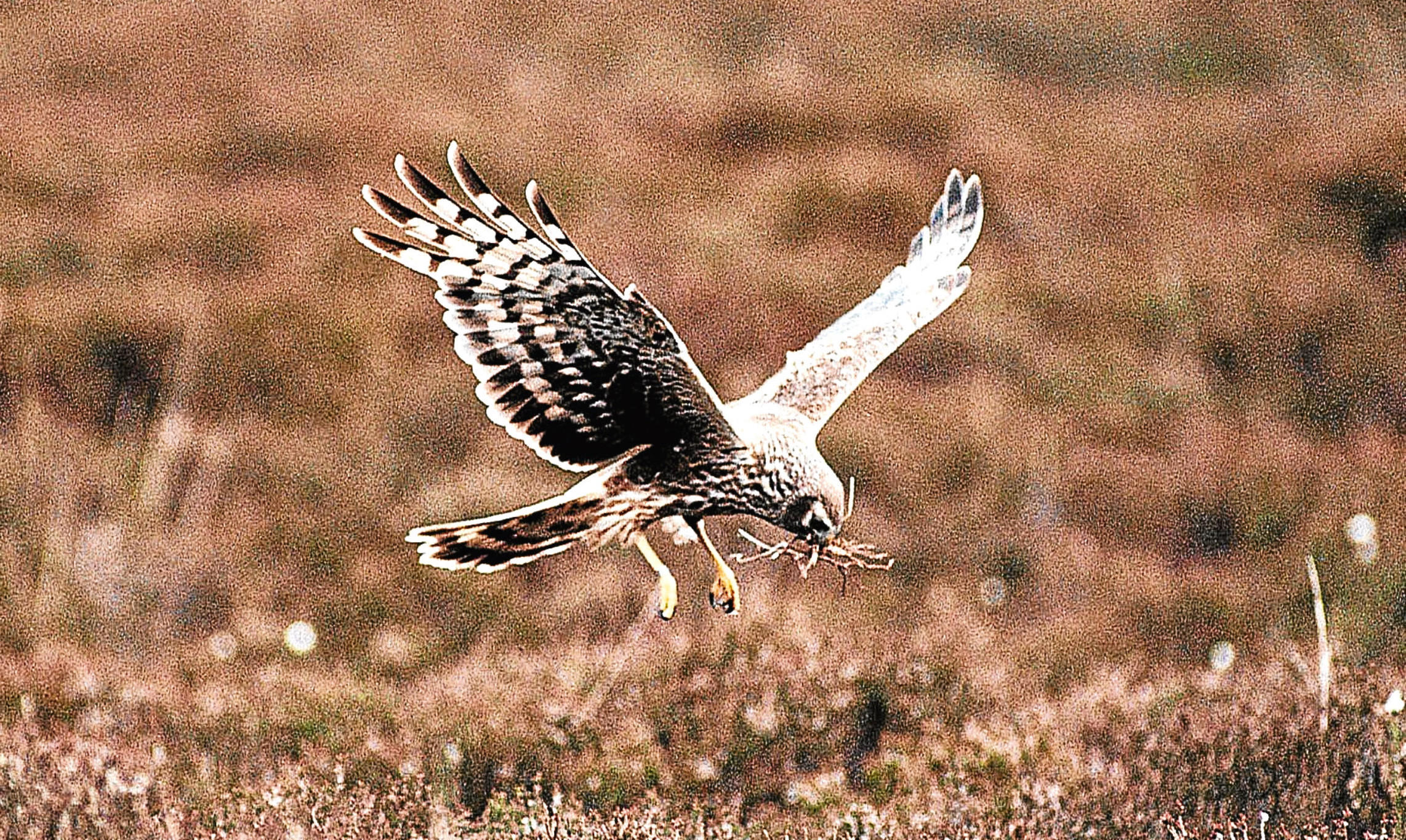A leading wildlife charity is calling for an urgent reform of grouse moor management as a new study outlines the “current and significant” threat to Scotland’s birds of prey.
RSPB Scotland said a spate of illegal raptor deaths reported in the last year, including the killing of a tracked hen harrier on a Perthshire moor, were “just the tip of the iceberg”.
As it publishes its yearly Birdcrime report, the charity is urging the UK Government to get tougher on driven grouse shooting.
However, aspects of the report have been criticised by gamekeepers, who have warned the campaign for reform could cause damage to estates in Perthshire and Angus and put families out of work.
The Birdcrime 2018 study confirms 12 incidents of illegal persecution in Scotland – more than double that recorded in 2017.
The charity has further highlighted the disappearance of four hen harriers that were being tracked as part of the RSPB’s Hen Harrier Life conservation programme.
These included a bird named Heather, which was last recorded on a grouse moor north of Glenalmond.
Duncan Orr-Ewing, Head of Species and Land Management at RSPB Scotland said: “Birds of prey are an integral part of Scotland’s heritage, woven into our landscapes and our history.
“We have international obligations to protect these birds. There is widespread revulsion amongst the Scottish public that these birds continue to suffer greatly at the hands of wildlife criminals.”
He said: “Our published data from Birdcrime 2018 shows that this damage is both current and significant, and reinforces why robust regulation of driven grouse shooting is urgently needed.”
Mr Orr-Ewing said the Scottish Government now has a chance to tackle raptor crime by bringing grouse moor management under regulation.
“Sanctions to remove licences to shoot should be available to act as a strong deterrent to those who currently break wildlife protection laws, and engage in other damaging land management practices.”
The study also highlights the environmental damage caused by muirburn on moorlands.
A spokesman for the Scottish Gamekeepers Association (SGA) responded: “We await the official independent statistics from the Scottish Government.”
He added: “The SGA has a proven stance against wildlife crime, removing eight members in seven years for wildlife crime convictions.
“We do not condone raptor crime.”
He said the association disagreed with RSPB on muirburn damage and its views on mountain hares, claiming research was carried out using the “least reliable count method available.”
The spokesman said: “Fortunately, Professor Allan Werritty, in his independent review of grouse shooting, will have looked at all the available science on these issues, including the more up to date research from GWCT showing that grouse moors can have up to 35 times more hares than non-managed moors.
“We await his report to Scottish Government.
“Until independent agencies monitor satellite tags, which the SGA is petitioning Parliament for currently, we regard RSPB’s claims regarding satellite tags as speculative and lacking in verifiable evidence.”










